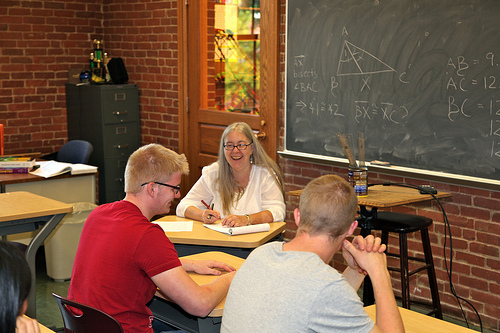A bill offering South Carolina parents education tax credits and allowing tax-credit scholarships passed the House March 29—a first for any such measure since school choice became key to the Republican agenda in 2004.
With a 62-38 vote, the bill now awaits discussion by the Senate’s Finance Committee. It likely faces an uphill battle through the Senate.
“The options should be broader than the local public schools and the legislature is recognizing that not every student fits into the public schools,” said Julie Shumpert, membership director for the South Carolina Association of Independent Home Schools.
School choice legislation has been raised in the state nearly every year since 2004 and has remained largely a party-line issue. That’s not the case nationally, where more than half of all successful school choice bills have been passed by Democrat-dominated legislatures or signed Democrat governors, according to the American Federation for Children, a school choice advocacy organization.
House Bill 4894 would allow an annual $4,000 tax deduction per pupil in private school. Homeschooling parents would receive up to a $2,000 per pupil line-item deduction. Additionally, poor and disabled students would become eligible for tax credit scholarships, where a nonprofit pays their tuition to a private school. Donors to these nonprofits could deduct donations from their taxable income.
Tax Deduction vs. Credit
This time around, some school-choice supporters say the effort has been considerably watered down.
“It’s almost not worth the effort,” said Barton Swaim, communications manager for the South Carolina Policy Council. “A deduction is far weaker than a credit. Sure, it’s nice, but it’s really not that much help. If the goal was to introduce more parental choice into the state’s education system, it’s hard to see how this deserves a lot of praise.”
Opponents say the state should focus on a more pressing need: fully funding public schools, which they say falls short by $700 per pupil. They also say this bill could cost the state $37 million in lost revenue in 2012-13. South Carolina spends approximately $11,000 per pupil, according to the National Center for Education Statistics.
Swaim disagrees, arguing South Carolina’s per-pupil costs, among the highest in the nation, are spent inefficiently.
“Instead of funding school districts and micromanaging how the money has to be used, the legislature should move the state to a system in which schools, not districts, are funded according to the needs of individual students,” Swaim said. “That would give administrators the flexibility they need to fund each child according to need.”
Fairness Defended
This year, 13 states and the District of Columbia offered private school choice programs, and legislators in more than 40 states introduced school choice legislation during the most recent session, according to the AFC.
“We reject the idea that it isn’t fair to offer tax breaks for parents who home-school or send their kids to private school,” Swaim said. “These parents are paying for public schools like everyone else, even though they’re not benefiting directly from the services public schools provide.”
Image by Worcester Academy.




